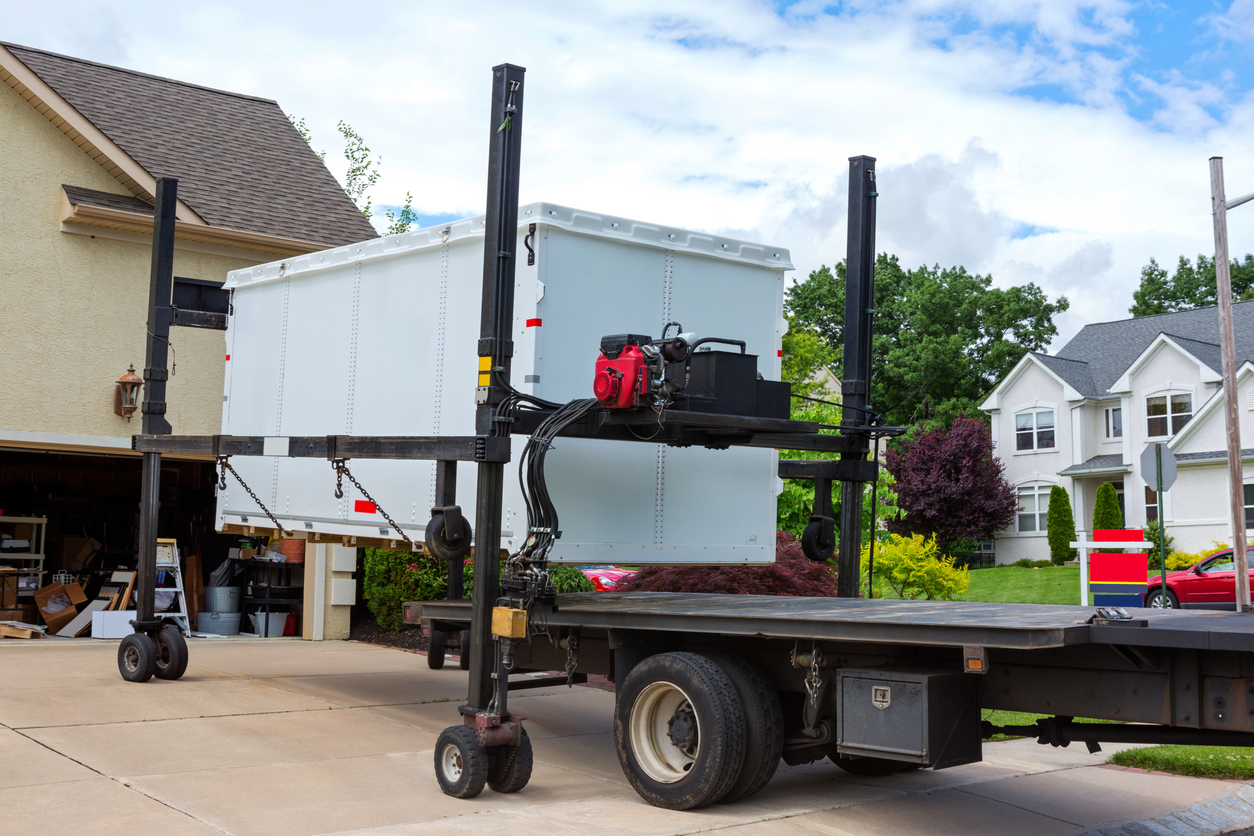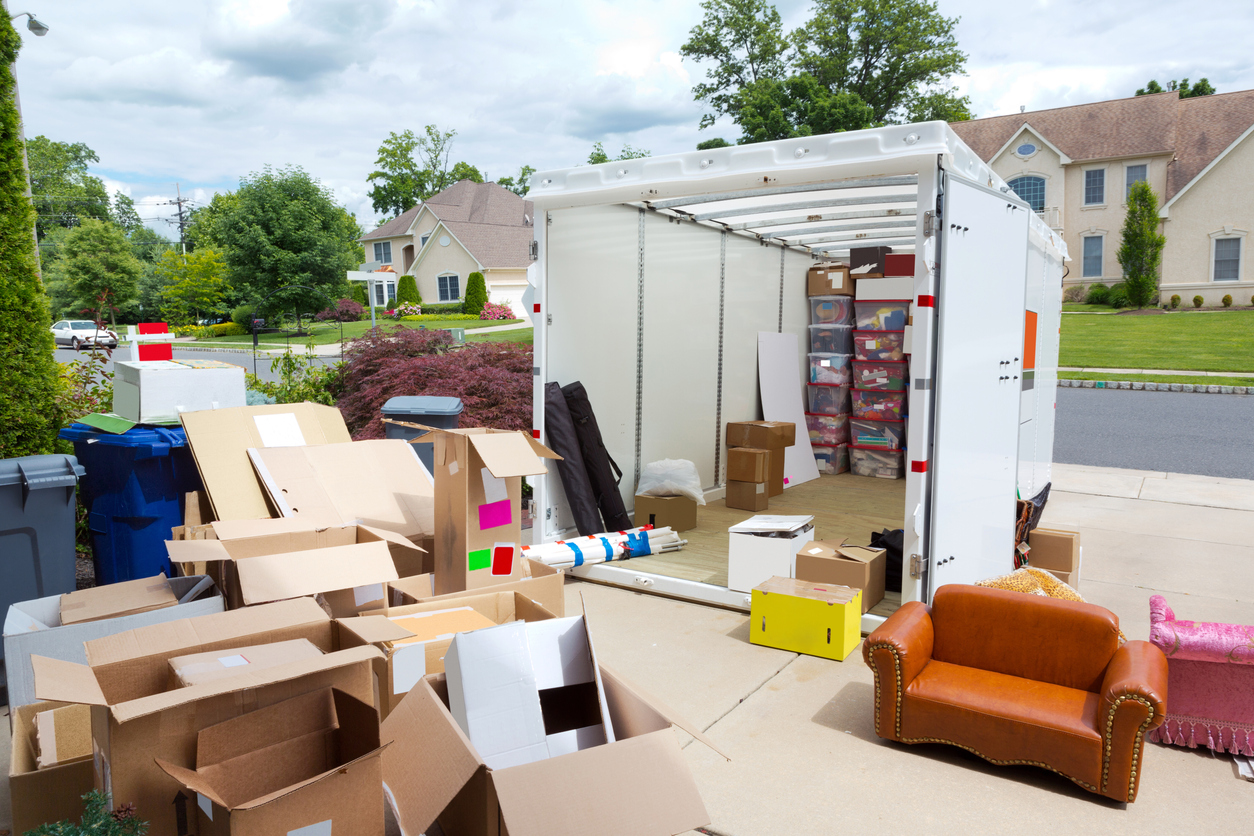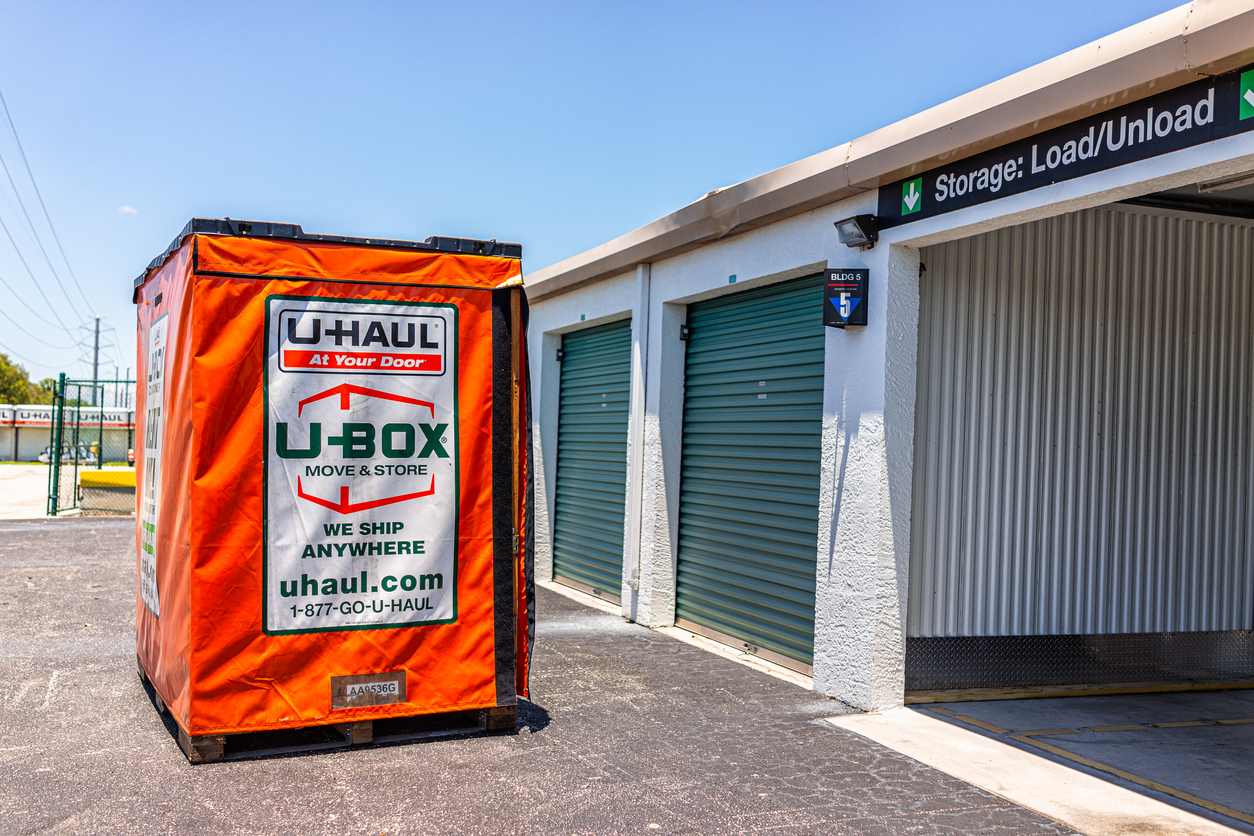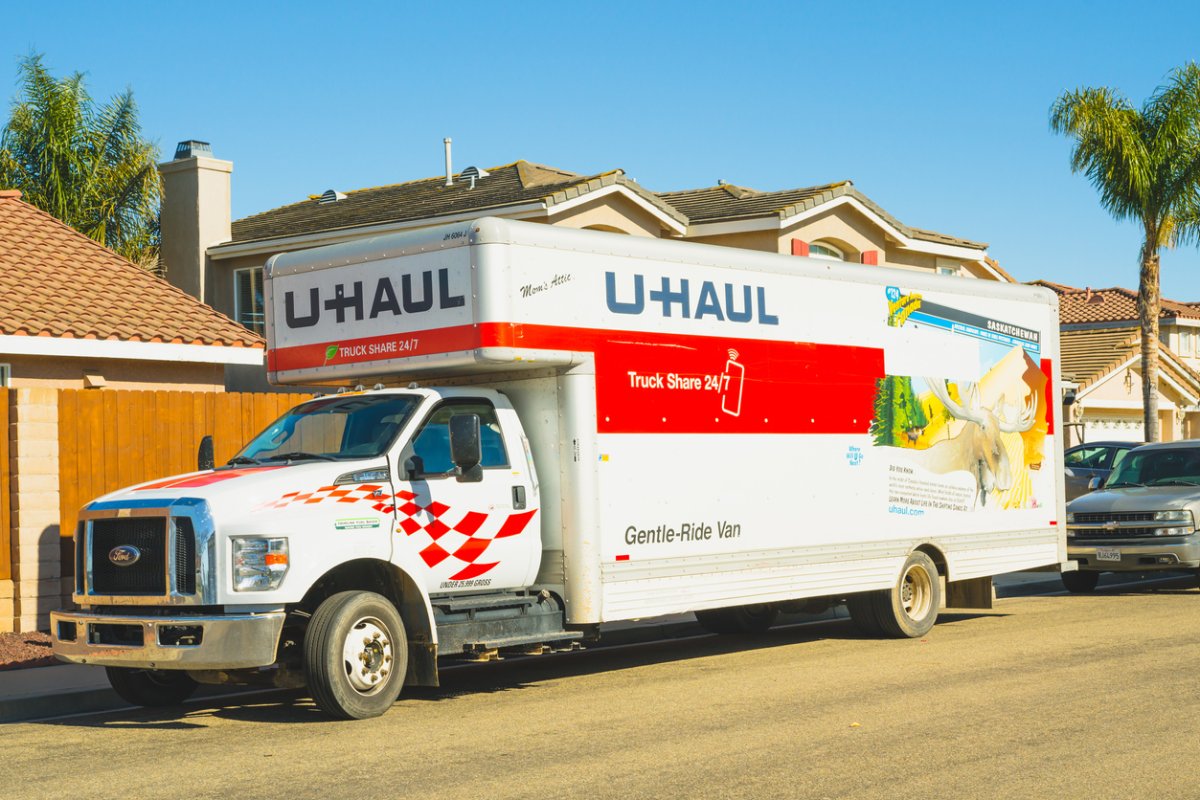We may earn revenue from the products available on this page and participate in affiliate programs. Learn More ›
Finding a new place to live is only part one of the moving process. Once you’ve found your new digs, actually getting there will take some planning. According to U.S. Census data, the average American can expect to move 11 times in their life. With this many moves to navigate, finding ways to make changing locations easier and more affordable is essential.
Doing the packing and moving yourself is cheaper than calling in professional help, but once you’ve packed up, you need to decide how you’re going to move your stuff to the new place. Are you going to rent a truck, pack it up, and move your belongings yourself, or will you rent a portable storage container and have it transported to the new location? Choosing between the two options comes down to your needs and preferences. Read on for the pros and cons of each option.
RELATED: How Much Do Movers Cost?
Timeline for Packing

If packing up a truck as soon as it arrives at the door feels like a lot of pressure, then a moving container may be a better route. These pods can be delivered up to a month in advance—or more, if needed—leaving plenty of time for packing at a comfortable pace. Then, once the container arrives at its destination, there will probably also be extra time to unload.
While it’s convenient to have a pod easily accessible so you can pack over time, that convenience comes at a price: The container is an eyesore that takes up a lot of space and announces your move—and the possible presence of valuables—to the world. These factors may be a deterrent, especially for those with smaller properties or a desire to keep the move quiet. A moving truck, on the other hand, is there and gone in one day.
RELATED: The Best Moving Truck Rental Companies
Quantity of Furniture and Belongings

A moving container is basically a big metallic shed. Large pods will offer plenty of room for families who have lots of furniture and belongings. For instance, a 16-foot container is ideal for a 2-bedroom home or up to 1,200 square feet. That said, for those who don’t need the extra space or packing time, it may be easier and more affordable to rent a small truck.
RELATED: The Best Moving Container Companies
Driving

If the thought of driving a giant rented truck sounds terrifying, opt for a container storage company that will deliver the pod to the original and final destinations. Having a professional driver removes the worry and potential cost of traffic incidents and saves you from having to shell out money on insurance, tolls, and gas (although these costs will ultimately be reflected in the pod company’s transportation fees).
One con is that the moving container company decides the schedule, and some don’t operate on weekends. Depending on demand, the pod delivery may end up taking place after the move-in date. In contrast, when you rent a truck, you get to decide when the stuff arrives. As well, with a truck rental, if you also need to move a personal vehicle to the new location, you may be able to tow it behind the rental truck.
Parking

When considering a storage container, families must have a place to park it for an extended period. This eliminates use by apartment dwellers, those without a driveway, and those who live in communities with strict rules about street parking. While parking a large moving truck can be a pain, someone can stay in the vehicle and move it as needed.
RELATED: How to Move Across the Country in 15 Steps
Size

People make houses out of storage containers, so they aren’t tiny. Most range from 7 to 16 feet, and they can be parked for an extended period once they’ve been delivered. Rental trucks, too, come in different sizes, from pickups and cargo vans to much larger trucks. This size range means that a single person or someone living in an area where parking may be an issue can choose a more compact vehicle that better suits their needs.
RELATED: The 7 Best Moving Companies in America, Vetted
Storage

One significant benefit of renting a storage container is that, as the name says, it offers a portable storage option. For anyone who needs storage either before or after the move, a container is a great alternative. Storage pods can be moved directly to a storage facility for temporary or extended storage.
In contrast, while it’s possible to rent a truck for a couple of days, it’s not a long-term storage alternative. However, some truck rental companies do offer short-term storage.
RELATED: 21 Brilliant Money-Saving Hacks for Your Next Move
Safety and Security

Portable storage containers are weatherproof and have secure locking systems to keep items safe until it’s time to unpack—although nothing is completely theftproof. Moving trucks left packed overnight or unattended, on the other hand, can be ripe targets for thieves. Renters should park their packed trucks in well-lit areas and consider using tamper-resistant padlocks.
Another benefit of containers is that the extra time for packing gives users the opportunity to secure items thoughtfully before transport. Sometimes with rental trucks, belongings end up thrown in hastily, leading to breakage. But such mishaps can be avoided if the users pack more carefully.
Pricing

There’s a significant variation in pricing for rental trucks and storage containers. Those planning a move will want to check all local options to compare quotes. In general, rental trucks range from $20 to $100 a day, depending on size of the truck and other factors. At the low end, Home Depot offers small trucks at an hourly charge, ideal for small moves. In comparing quotes, renters should be sure to factor in the cost of gas and tolls.
A portable storage unit’s cost will vary depending on size, location, and season, but the average ranges from $150 to $400 per month. There may also be separate delivery and pickup fees, depending on the company and the distance of the move. Long-distance moves will cost more.
RELATED: The 7 Best Moving Companies in America, Vetted
The Stress Factor

It’s no secret that moving can be a pain, so it’s a good idea to reduce stressors when possible. Start by weighing these considerations: ideal packing timeline, comfort level with driving a truck, neighborhood rules about storage container parking, budget limitations, and storage needs. Consider your comfort levels around the factors discussed above before making a decision to make your move as stress-free as possible.


